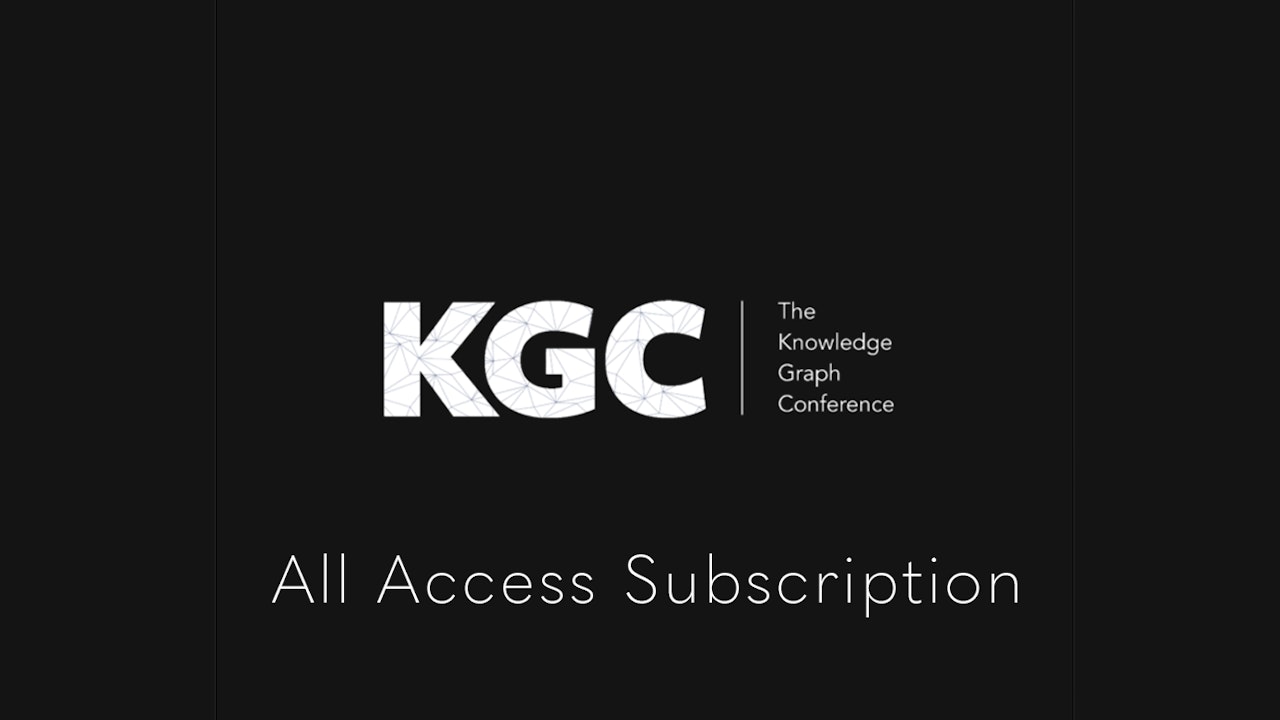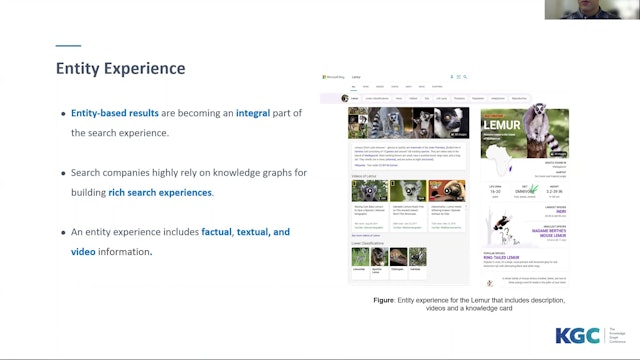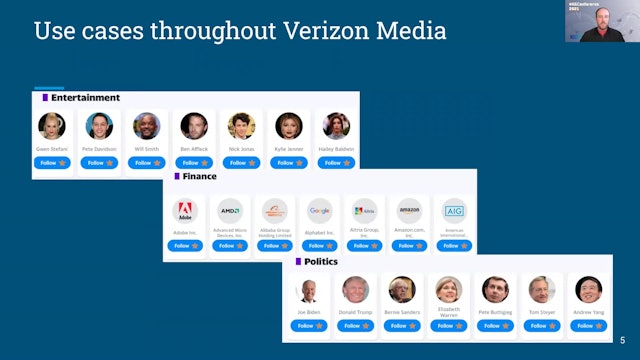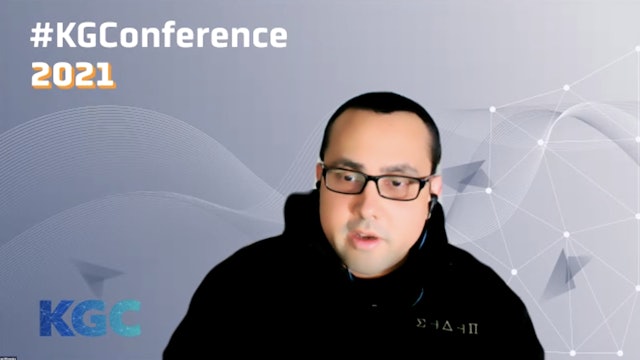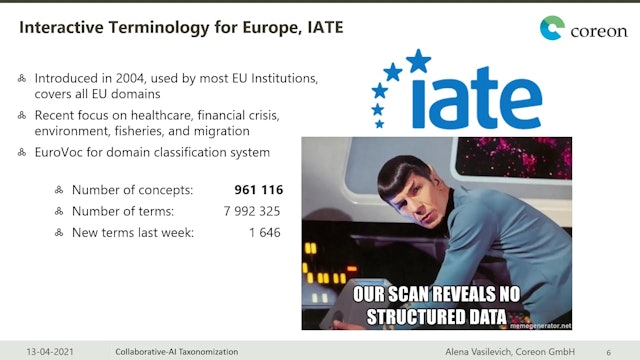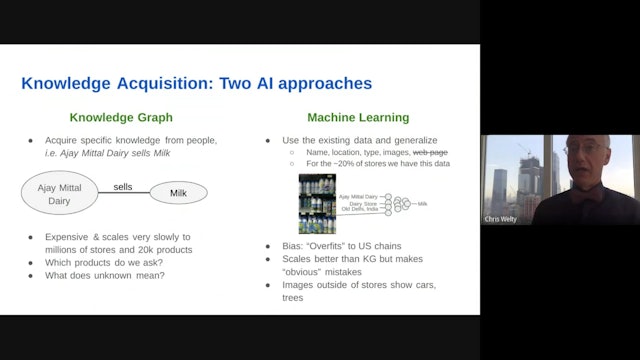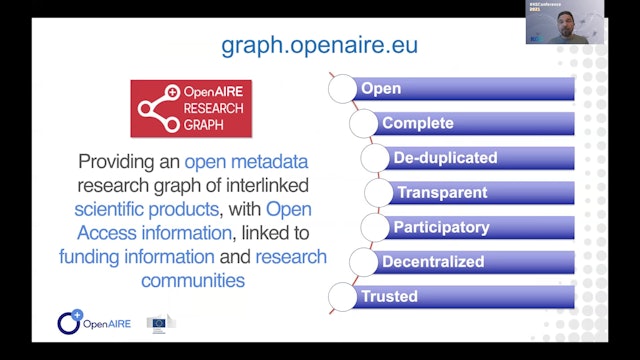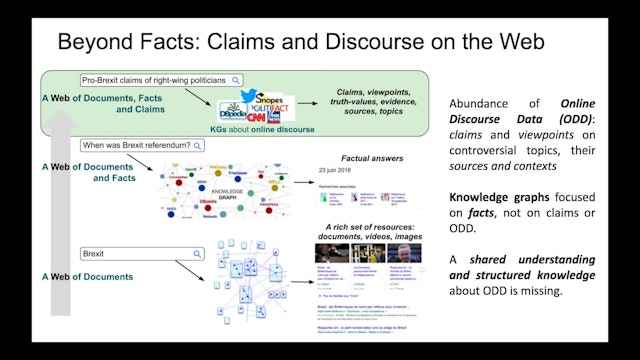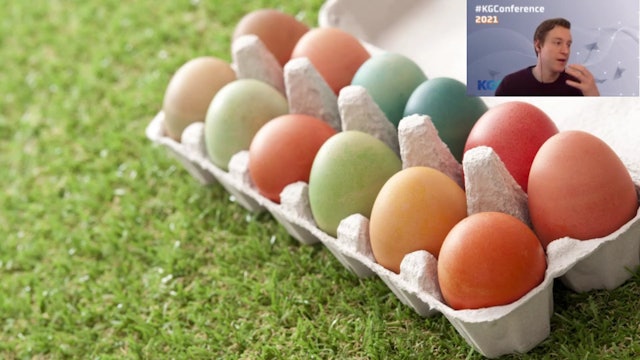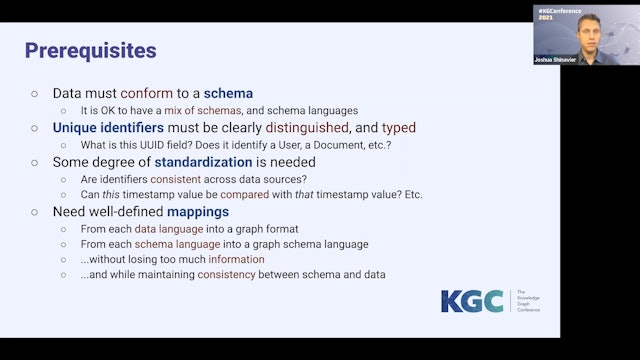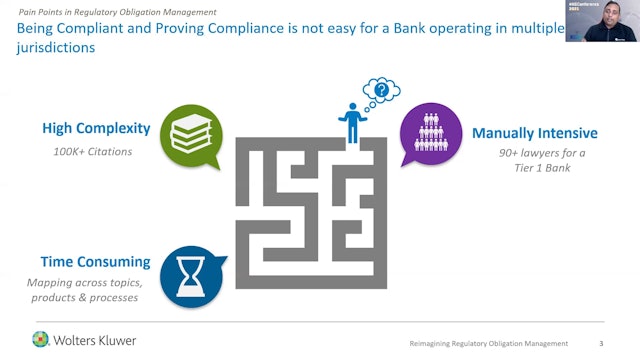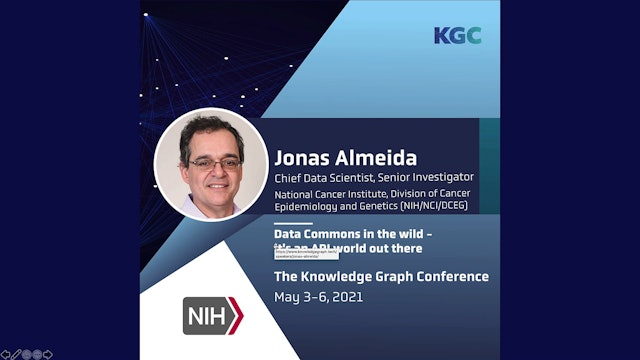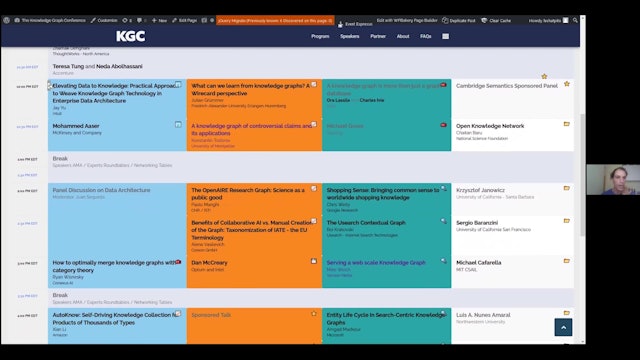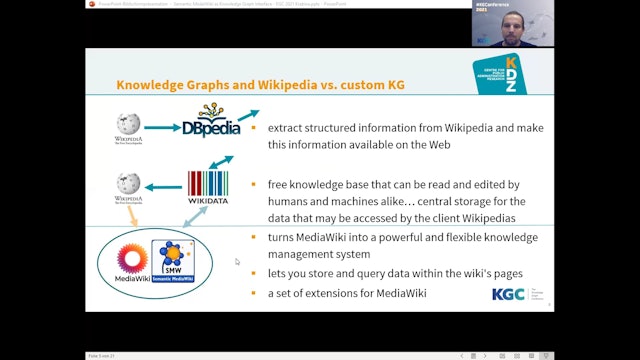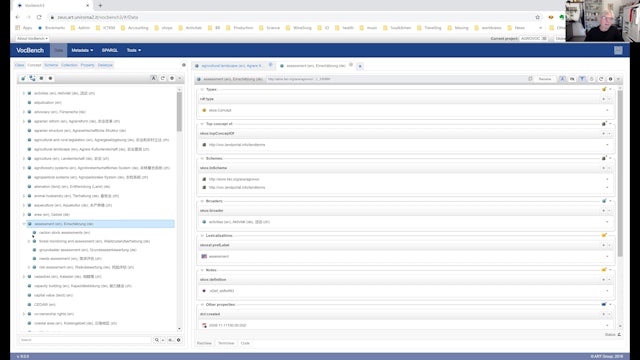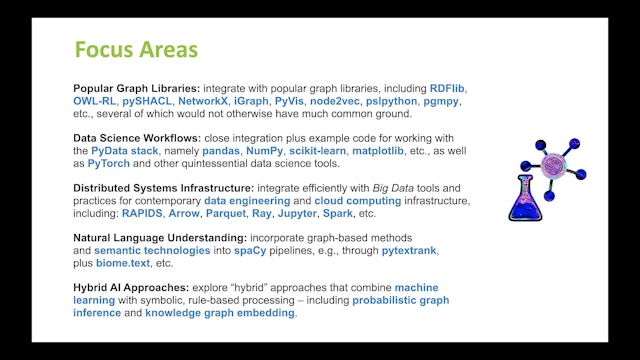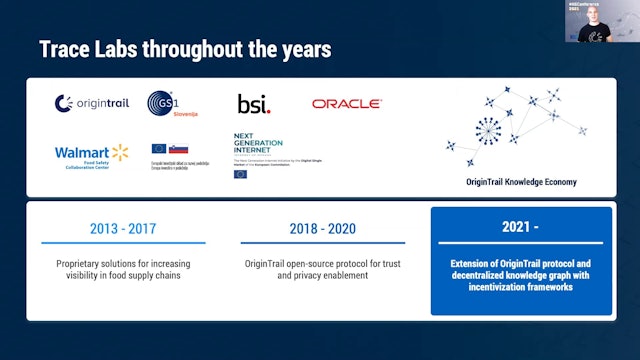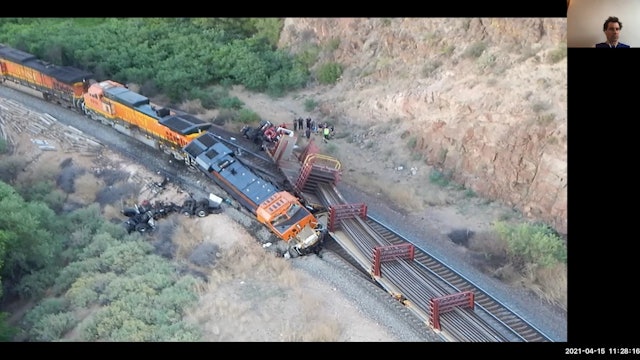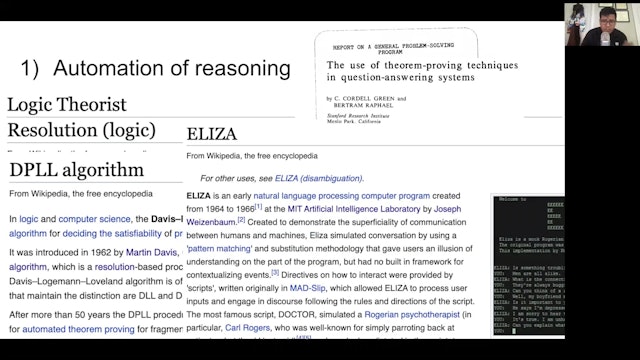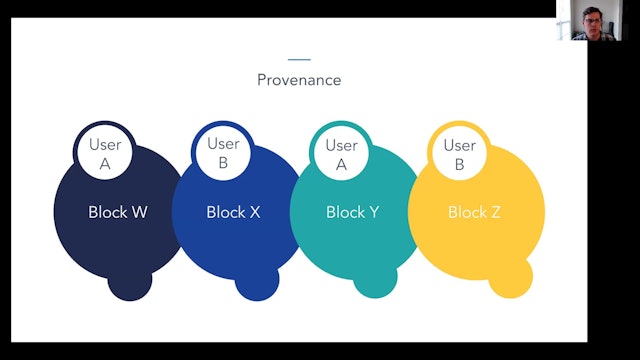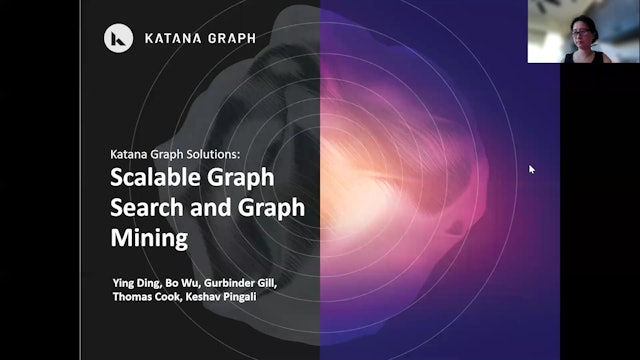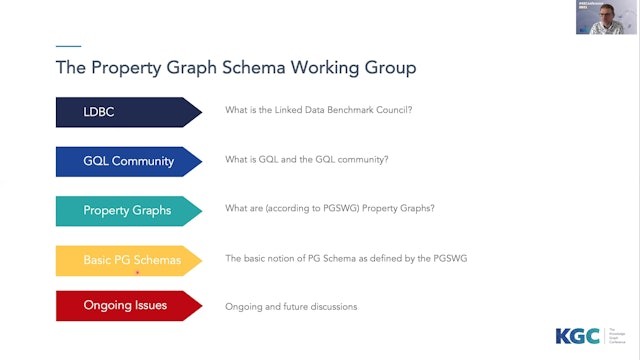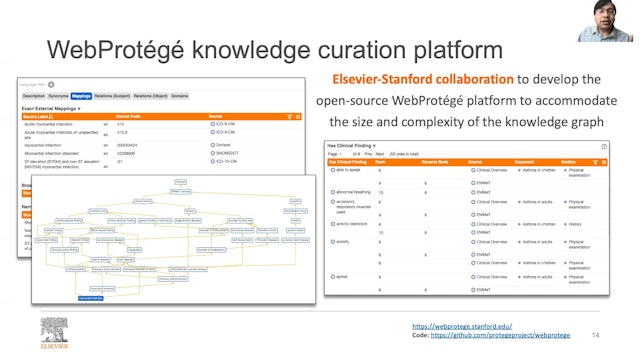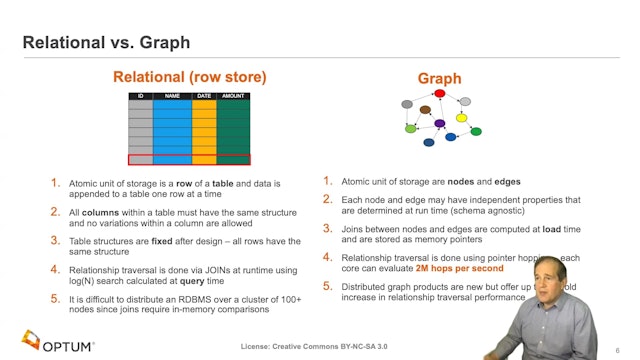KGC | All Access Subscription
Every conference video. Every Book Club. Every KnoweldgeEspress. All for a low monthly rate.
-
Amgad Madkour | Entity Life Cycle In Search-Centric Knowledge Graphs
Entity-based results are becoming an integral part of the search experience. Search-centric companies highly rely on knowledge graphs in providing the necessary information for building rich search experiences. An entity can originate from a structured, semi-structured, or unstructured data sourc...
-
Mike Welch | Serving A Web Scale Knowledge Graph
The Yahoo Knowledge Graph powers entity data for user experiences across multiple products at Verizon Media, from search to media to ads. Nodes in the knowledge graph correspond to real world entities: people, places, movies, sports teams, and so on. The edges represent semantic relationships bet...
-
Ryan Wisnesky | How To Optimally Merge Knowledge Graphs With Category Theory
In this talk we describe a new technique for merging knowledge graphs: translating the knowledge graph schemas into categories and the knowledge graph data into functors, then applying the "co-limit/pushout" construction from a branch of mathematics called category theory to merge these categorie...
-
Alena Vasilevich | Benefits Of Collaborative AI vs. Manual Creation
In the realm of data-driven businesses, structured data, being highly organized and easily understood by machines, is a valuable resource. IATE, with almost one million concepts storing multilingual terms and metadata, holds a large part of the textual knowledge of the EU. However, it can only be...
-
Chris Welty | Shopping Sense: Bringing Common Sense To Worldwide Shopping
Knowledge Graphs (KGs) continue to penetrate the industrial world after Google's famous "things not strings" was used to explain their acquisition of FreeBase ten years ago. While many KGs exist, they are by and large little more than "entity catalogs", missing entirely the links between those e...
-
Paolo Manghi | The OpenAIRE Research Graph: Science As A Public Good
The presentation will introduce the motivations, architecture, and operation of the OpenAIRE Research Graph (http://graph.openaire.eu), one of the largest (if not the largest) public, open access, collections of metadata and semantic links (~1Bi) between research-related entities: articles (124M+...
-
Konstantin Todorov | Browsing The Web Of Claims
How do falsehoods spread on the web? This and other questions related to the propagation of fake news and biased discourse in the public area have been drawing increasing interest in different communities from social sciences to artificial intelligence. Online discourse, i.e. claims and opinions ...
-
Chaitan Baru | Open Knowledge Network
The concept of an Open Knowledge Network (OKN) is one of the components of the National Science Foundation’s Harnessing the Data Revolution (HDR) Big Idea, with the objective of providing semantic information infrastructure. By encoding information and knowledge about real-world entities and thei...
-
Ben De Meester | PROV4ITDaTa: Flexible Knowledge Graph Generation Within Reach
Personal Knowledge Graph generation is no longer a cumbersome technical endeavor. PROV4ITDaTa is an MIT open source platform to provide a smooth user experience for generating knowledge graphs from your online web services, such as Google, Flickr, and Imgur, into your personal data space. This br...
-
Joshua Shinavier | Anything To Graph
Show me your schemas, and I will show you a graph! Although graph databases have become very popular in the enterprise, deep expertise in graphs is still in short supply (see "Building an Enterprise Knowledge Graph @Uber: Lessons from Reality" from KGC 2019). Developers often think of graphs as a...
-
Abhishek Mittal | Re-Imagining Regulatory Obligation Management
Content Enrichment: Development and deployment of a 5-stage taxonomy. Applying the taxonomy to tag regulations and classify them for improved discovery & work assignment.
Smart Authoring: Leveraging advanced NLP and ML techniques to learn from the past content authoring for identification of key ... -
Jonas Almeida | Data Commons In The Wild - It's An API World Out There
The increasing reliance on distributed epidemiological data sources for time sensitive analysis defines an emergent computational commons space: API ecosystems supporting epidemiology data commons. This space has been forced to evolve significantly to meet the real-time requirements of COVID-19 i...
-
KGC 2021 Overview
-
Bernhard Krabina | Semantic MediaWiki As Knowledge Graph Interface
Semantic MediaWiki (SMW), which was introduced as early as in 2006, has since gone on to establish a vital community and is currently one of the few semantic wiki solutions still in existence. SMW is an extension of MediaWiki, the software used for Wikipedia and many other projects, resulting in ...
-
Johannes Keizer | VocBench: A Semantic Web Collab Dev. Platform For Ontologies
This presentation will feature and demonstrate "VocBench", an semantic web collaborative development platform for ontologies, thesauri and lexicons.
VocBench has initially been developed for maintenance of the thesaurus "Agrovoc". It has become then a generic tool for thesaurus management and now... -
Paco Nathan | Graph Based Data Science
Python offers excellent libraries for working with graphs: semantic technologies, graph queries, interactive visualizations, graph algorithms, probabilistic graph inference, as well as embedding and other integrations with deep learning. However, most of these approaches share little common groun...
-
Branimir Rakic | OriginTrail: Decentralized Knowledge Graph
Knowledge graphs are powerful tools used by organizations to integrate their siloed data into useful, machine readable information for a wide range of purposes. The OriginTrail Decentralized Knowledge Graph (DKG) extends this approach to enable trusted knowledge exchange between multiple organiza...
-
Freddy Lecue | On The Role Of Knowledge Graphs In Explainable Machine Learning
Machine Learning (ML), as one of the key drivers of Artificial Intelligence, has demonstrated disruptive results in numerous industries. However one of the most fundamental problems of applying ML, and particularly Artificial Neural Network models, in critical systems is its inability to provide ...
-
Juan Sequeda | History Of Knowledge Graphs: Main Ideas
Knowledge Graphs can be considered as fulfilling an early vision in Computer Science of creating intelligent systems that integrate knowledge and data at large scale. Stemming from scientific advancements in research areas of Semantic Web, Databases, Knowledge representation, NLP, Machine Learnin...
-
Trey Botard | Bringing Time & Truth To Semantic Data
Semantic systems provide tremendous opportunities to interoperate our data, facilitate shared vocabularies, and power enterprise knowledge graphs, but these increasingly distributed data ecosystems also introduce new instabilities and concerns. What happens when data we rely on is changing in une...
-
Ying Ding | Katana Graph Solutions: Scalable Graph Search & Graph Mining
When knowledge graphs in your company get larger and larger, a scalable graph search is in high demand. In the current graph search solutions, scalability is still a big issue. Furthermore, with the fast development of deep learning on graphs, many companies rely on deep learning methods to mine ...
-
Jan Hidders | A Report From The Property Graph Schema Working Group
The Property Graph Schema Working Group (PGSWG) is an informal working group that was set up in 2018 under the umbrella of LDBC, the Linked Data Benchmark Council, to support the formal working group that works on the SQL/PGQ and GQL, the upcoming ISO/IEC standards for managing property graphs. T...
-
Maulik Kamdar | Elsevier's Healthcare Knowledge Graph
Knowledge Graphs are increasingly being developed and leveraged in academia and industry to tackle complex biomedical challenges, such as drug discovery and safety, medical literature search, clinical decision support, and disease monitoring and management. In this talk, we will present the resea...
-
Dan McCreary | Graph Hardware Is Coming!
In this presentation we will show how current general-purpose CPU hardware fails to deliver high performance graph analytics. We show that by doing a detailed analysis of the actual hardware functionally needed by graph queries (pointer jumping), we can redesign hardware that is optimized for fas...


